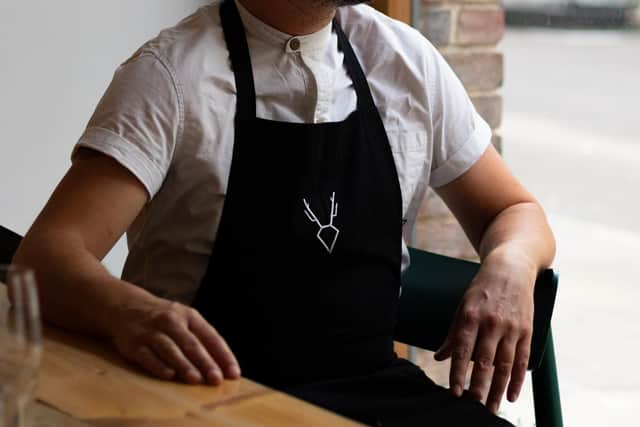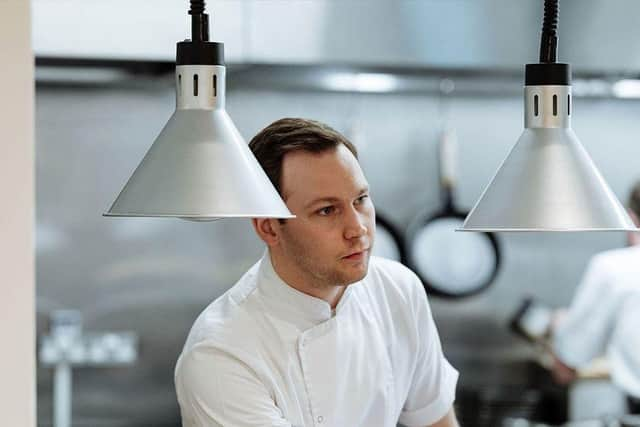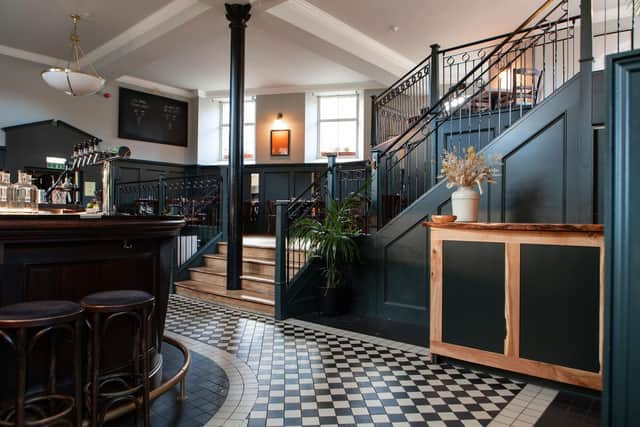'I believe we are on the edge of a greater crisis for the economy' - top chefs plead with Scottish Government to reduce business rates in line with England and Wales
Scottish chefs are begging the Scottish government to “save” hospitality by offering the same reduction in business rates that are available in England and Wales. Scottish Greens MSP Lorna Slater has said that there isn’t enough money to offer the same reduction, causing outrage and worry from some business owners.
Chef Dean Banks, owner of Haar, Dulse and who runs Dean Banks at the Pompadour, said: “I’m worried about what this will mean for our industry, our restaurants, our staff, our lives, our business, our homes, bars and hotels and for our country.
Advertisement
Hide AdAdvertisement
Hide Ad“We produce some of the best food and drink in the world, from seafood to spirits, beer to beef – and the most perfect flavour-packed healthy fruit and vegetables.


“Our restaurants, cafes, bars, hotels and coffee shops are renowned the world over for exemplary food, drinks and service – that welcoming spirit that people all over the world associate with Scotland. Incredibly creative people who want to welcome you, want to look after you, want you to share their passion and joy for what they do. And it is all hanging by a rapidly fraying thread.
“We have already lost far too many businesses, too many people, some leaving the trade forever. Livelihoods are at risk, jobs are at risk. We don’t want special treatment – we want equal treatment.”
Anna Parker, MD at Celentano’s in Glasgow, added that the current rates situation in Scotland vs England and Wales is a “hard pill to swallow”. She said: “The past few years have been so challenging for hospitality and it feels like there is very little support from the Scottish government. All costs are increasing so we need help somewhere to keep business afloat.
Chef Nick Nairn, who recently reopened his Bridge of Allan restaurant and is set to reopen his cook school said: “Our industry is in an exceedingly vulnerable position, while it might be tempting to assume that our sector will quickly return to pre-pandemic levels, the reality is quite different. Many businesses are now grappling with the additional burden of rising costs, coupled with substantial debts incurred during the pandemic. Furthermore, they face formidable challenges within the broader economic landscape; with consumers having considerably less disposable income, production costs rising and not to mention the National Living Wage (NLW) increasing. Relief is needed now.”


Paul Walker, MD of Maryculter House in Aberdeen said: “Hospitality is a significant part of the Scottish economy and I feel that there has not been enough support for such an important industry that is one of the largest employers in the country. Our business costs have skyrocketed, the same as domestic, but because we need to price ourselves according to market conditions i.e. how much our customers would be willing to pay, we need to be careful that we don’t price ourselves out of the market.
“Furthermore we need to make sure our staff are paid well as they, too, are facing the cost of living crisis and, with increases in National Minimum Wage and Living Wage, that, too, increases costs for businesses. Rate reduction and VAT reduction would provide much needed help and would help save hundreds of businesses and livelihoods so here’s hoping our industry can get a bumper Christmas to help see us through a tough winter.”
When asked what they’d like to see from this week’s Scottish Budget, Ms Parker said: “Financial support. In any way to be honest, such as a cap on energy bills, support with necessary expenses such as bin collections, HMRC bills and VAT reduction etc.”
Advertisement
Hide AdAdvertisement
Hide AdScott Smith, chef patron of Fhior in Edinburgh thinks that many things can be done in the budget to help the sector. He said: ”One thing that I feel would have the greatest immediate impact would be a reduction in VAT in certain sectors such as hospitality. That would provide a much-needed cushion against other rising costs.”


Craig Grozier from Fallachan Dining, in Glasgow said that a cap in energy bills is needed, or “having at least some bills fixed helps with budgeting during a time of rising and varying producer costs.”
If nothing is forthcoming on this, Ms Parker warned that it’ll be “another extremely challenging year, perhaps the hardest yet because of the National Living Wage increase”. She said: “in some cases, staff members will be receiving more than a £2 per hour increase in their pay. Whilst, I don’t begrudge paying my staff what they need to be paid, but it is a vicious circle. If they need to be paid more, then my costs need to increase (including menu prices) but with that, footfall may decrease. It’s a scary thought and unfortunately will result in running with tighter teams, meaning teams are more stretched. But there is no other way to break even, never mind make any profit.”
Nairn added: “Unfortunately we may well see some fantastic businesses close and/or we’ll lose all the hard work we’ve done as a sector over the last 20 years. From working sustainably, sourcing quality produce and being innovative with such amazing ingredients, unfortunately we’ll see corners being cut to make ends meet, which is such a shame for the industry. The government will also end up paying out on redundancy for staffing as hospitality businesses go into administration – it’s a vicious circle.”
Smith said: “I believe we are on the edge of a greater crisis for the economy. It's much larger than the thousands of struggling small businesses. Without definitive action and support from the government, I think we will see many more businesses close in the next year, with many more jobs lost. Resulting in even less income in taxes for the government. Surely what would make it an even deeper hole to get out of.”